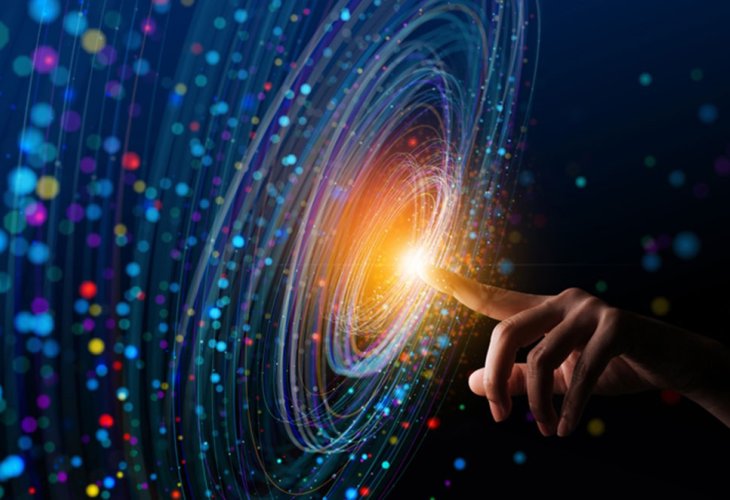Faith
Einstein’s Search for the Theory of Everything: What Science and Faith Teach Us About Creation
Exploring Einstein’s quest, the limits of philosophy, and why the complexity of life points to a purposeful Creator rather than random chance
 (Photo: shutterstock)
(Photo: shutterstock)At the end of his life, after formulating some of the most important theories in science, such as the theory of relativity and the equation of matter and energy, Albert Einstein dedicated his efforts to finding a “theory of everything,” that would unify all the laws of nature and explain how everything in the universe is interconnected. Unfortunately, such a formula has not yet been discovered, though progress has been made in its pursuit.
In the meantime, we can ask ourselves: is everything really connected? Does everything truly come from one source? The first question to examine is whether the world was consciously designed, with purpose and intent, or whether it came about by chance, over endless ages of trial and error.
If you were to find a doll in the middle of a forest clearing, would you believe it appeared “out of nothing”? Or would you assume that someone created it and left it, or lost it there? Even if one believes the world is billions of years old, it is still impossible for a doll to have gradually formed out of chaos and randomness without design or execution. If we are certain a doll was crafted by an intelligent being, should we not be even more certain that a human being was created by Someone?
Imagine tossing a bowl of random letters. Statistically, the chance that they would fall into an ordered, meaningful book — even if given a billion years, is essentially zero.
Why then, should we believe that the infinitely complex universe could have arisen without design? Even if it were possible, the obvious question arises: why did this world emerge and not some other? Why this version of history and not countless others? The very fact that it is this way, and not another, suggests the presence of a conscious will directing it.
According to the Torah, everything that exists is linked, planned, outlined, and created by a supremely intelligent and aware Being. Not only is everything connected, but everything belongs to a grand universal program that is meticulously arranged, with a beginning, middle, and end, under God’s direction.
Why are so many people willing to admit that a doll, book, or computer must have been designed, but insist that a plant, an animal, or a human being came into existence randomly?
The difference is that with man-made objects, we can identify the makers, see them physically, or rely on the testimony of those who saw them. For nature, finding the Creator requires effort of observing nature itself, and the world around us as His creations.
Is it harder to make a computer, or a living creature? Consider the complexity of a dog’s respiratory system, circulatory system, digestive system or nervous system — its brain controlling the rest of its body, its eyes adjusting automatically to any distance or angle without calibration. No camera can match such a system!
After reflecting on the dog, turn your gaze to yourself. Your body is astonishingly complex and perfectly coordinated, producing a wondrous result. Move your hand — did it move? Your very desire made it obey instantly, without remote control, batteries, or power cables. This is far more brilliant than any robot built in a factory.
If a computer, with all its impressive complexity, was designed by intelligence, how much more so a human being. Clearly, everything in existence points to an intelligent Creator, known as God.
In fact, anyone who believes in “something” that created and governs the world already believes in God, regardless of the name they use. Even those who call it “Mother Nature” have only substituted one name for another.
Even the cult of the Raëlians, who claim humans were created by extraterrestrials, still assumes the same principle, that life was designed by intelligent forces. Their theory is incomplete, because it doesn't answer the question of who created the extraterrestrials. Ultimately, anyone who asks the fundamental questions will reach the conclusion of an eternal, limitless God — without body, without beginning, existing forever.
When I joined a study group that wasn’t inventing new ideas but simply transmitting what was written in ancient books — all rooted in the Torah, I felt that despite my limitations, I could rely on these teachings in my search for truth. Even if I wasn’t like Abraham, who discovered God on his own, I knew I could find answers here. That became my focus in the days that followed.
Anyone who searches sincerely for the truth about the origin of the universe, without bias, will ultimately recognize the God described in the Torah, just as Abraham did. Of course, many, like me, can encounter obstacles and draw false conclusions. For example, those who claim that “Mother Nature” governs the world are making the same mistake as the ancient Egyptians, confusing nature with the divine. While those who say mankind was created by aliens fall into the trap of convenience, because it feels easier to believe in limited beings who left us to ourselves — beings who, unlike God, don’t see our every action.

